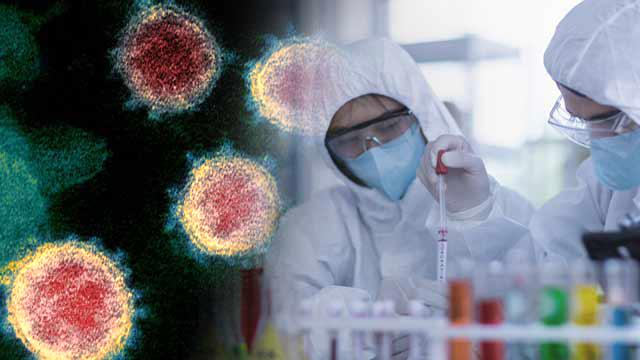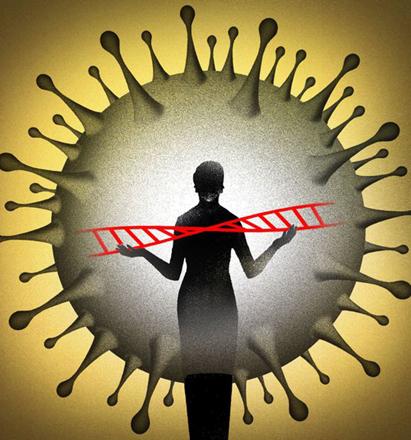You are here
Virus mutations unlikely to mean stronger strain — experts
May 09,2020 - Last updated at May 09,2020

AFP photo
PARIS — The coronavirus' constant mutation is unlikely to have changes its potency or its contagiousness, disease experts say, despite recent research suggesting the emergence of a more virulent strain.
A pre-paper — that is, not reviewed by a collection of the researchers' peers — released last month by Los Alamos National Laboratory claimed to have identified a new strain of the virus.
A mutation on one of the virus' protein spikes made the strain currently circulating in Europe and the United States potentially more potent than the one that emerged from China at the end of last year, the authors claimed.
"The mutation Spike is of urgent concern; it began spreading in Europe in early February, and when introduced to new regions it rapidly becomes the dominant form," they wrote.
They said that any new strain might have implications on the efficacy of treatments or vaccines against COVID-19 currently in development.
The study made headlines but provoked calls for caution from disease experts, mainly due to the fact that the theory of increased transmissibility had not been tested in the lab.
"This variant might have been lucky and got introduced to places outside Wuhan and different approaches to social distancing early on," William Hanage, associate professor at Harvard University's T. H. Chan School of Public Health, said on Twitter.
"Essentially the virus has been mutating... That don't mean that much. Mutations are what happens when genomes replicate. Comes with the territory like showers with the springtime."
'Speculation'
Viruses such as COVID-19 are essentially bundles of coded material — RNA — containing instructions for how to build copies of themselves.
Since they need the cells of another organism in order to replicate, tiny errors occur as the RNA is reproduced, leading to mutations.
A paper by researchers at University College London found that at least 198 sites in the virus' genome had already undergone sustained mutation.
This was "consistent with multiple introductions of the virus to regions throughout the world seeding local transmission events," the authors said.
Reacting to both the UCL and Los Alamos studies, Lawrence Young, professor of Molecular Oncology at the University of Warwick, said any talk of more virulent strains was "speculation" right now.
He noted that unlike other viral diseases such as HIV, COVID-19 doesn't appear to be mutating at a high rate.
"There is currently no compelling evidence that the mutations have had a significant effect on how the virus affects us," he said.
'Virus doing well enough'
In a paper published this week in the journal Virus Evolution, researchers from the University of Glasgow said they had only found evidence of one type of the virus.
"By analysing the extensive genetic sequence variation present in the genomes of the SARS-CoV-2 virus, the evolutionary analysis shows why these claims that multiple types of the virus are currently circulating are unfounded," said Oscar MacLean, from the university's Centre for Virus Research.
"It is important people are not concerned about virus mutations — these are normal and expected as a virus passes through a population."
While mutations don't mean that COVID-19 is getting more potent or more infectious, experts stressed it was still important to track its evolution.
"Sequencing more genomes will help us to better understand the spread of the virus and whether some of the minor changes observed are important in the behaviour of the virus and how we should develop effective vaccines," said Young.
For Ian Jones, a professor of virology at the University of Reading, the issue of mutation was of less importance than testing and treating people who become infected.
"At our cost the virus is doing well enough colonising the human population, I don't see the drive for it to get nastier anytime soon," he said.
By Amélie Bottollier-Depois
Related Articles
PARIS — China reported its first cases of the new coronavirus in December. But was COVID-19 already silently circulating?
PARIS/WASHINGTON — From medical workers struggling to care for the rising tide of COVID-19 patients to the billions of people told to stay h
PARIS — As dozens of countries blocked the flow of people and goods from Britain to avoid a new and more contagious strain of coronavirus, s
















